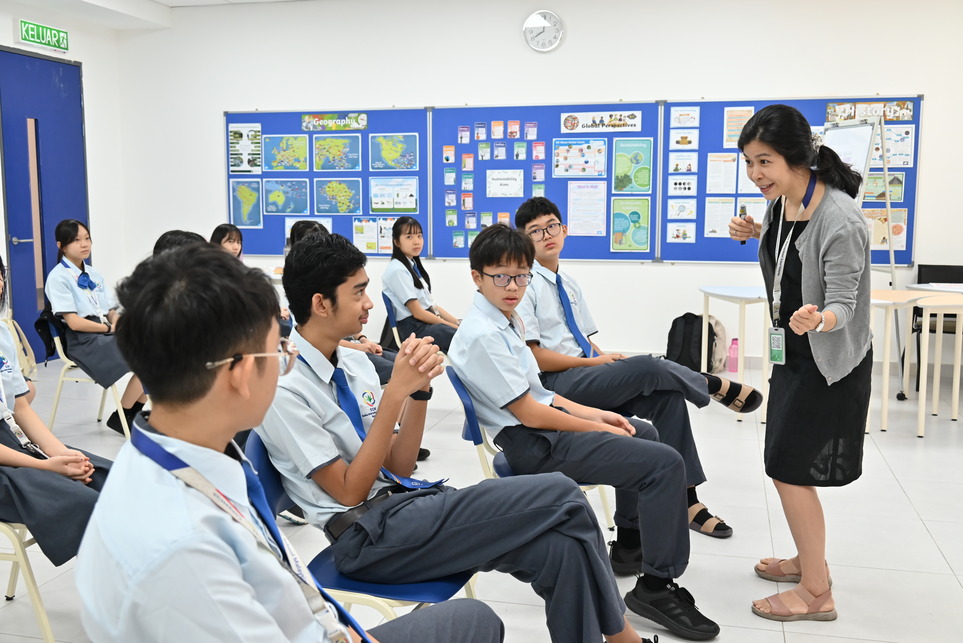Bullying is a widespread issue, affecting children not just at school or on playgrounds, but also on the digital realm. Since the pandemic, online bullying has also increased significantly, taking on a more insidious form, lurking anonymously in chats and social media posts, while spreading venomous and hurtful messages.
Alarmingly, bullying shows no signs of stopping, with school incidents rising to 4,994 cases in 2023, compared to 3,887 cases from the previous year, based on MoE’s Sistem Sahsiah Diri Murid (SSDM) statistics.
The consequences of bullying are long-lasting, impacting a student’s self-esteem, academic performance, and overall well-being even long after the incidents has ended. To effectively address bullying, it is crucial to understand it’s root cause. During the formative years, young individuals are shaped by various internal and external factors that can lead them to act out of character. Factors such as insecurities, exposure to violence, and social pressure can lead young people to bully others as a way to gain power or acceptance.
The Crucial Role of School in Fostering Understanding and Curbing Bullying
Schools are uniquely positioned to combat bullying and play a pivotal role in shaping young minds, through programmes that promote empathy, respect, compassion, and kindness. By promoting understanding and appreciation of diversity, schools can reduce bullying incidents. Resources like counselling and peer support groups provide students with guidance they need to navigate social challenges and build healthy relationships.
Humanistic Learning Model : Social-Emotional and Dialogic Learning
An effective approach is the Humanistic Learning Model, which encourages students to practise values that transform negative behaviour. This model not only fosters personal growth, change, and transformation, but also guides individuals to become better versions of themselves.

Furthermore, the social-emotional and dialogic learning approach reduces bullying by cultivating mutual respect and appreciation. This method integrates mindfulness, stress management, and healthy lifestyle habits into the school curriculum, enhancing students’ overall well-being and focusing on personal growth instead of bullying behaviours.
Making a Difference at Soka International School Malaysia (SISM)
SISM emphasises a humanistic learning approach to create an engaging and inspiring learning environment for students. “At SISM, students are provided with a meaningful environment that helps them become the best versions of themselves. The learning methods at SISM are tailored for individual needs, interests, and learning styles while being surrounded in a safe space for development, to help students thrive. Additionally, SISM has also partnered with private counsellors to provide students guidance on sensitive topics, amongst which includes bullying,” said Dr. Wendy Yee, Principal of the Soka International School Malaysia
The Importance of Support
In a boarding school setting, the impact of bullying can be significantly magnified. Chin Lek Sin, SISM’s school counsellor stresses the importance of vigilance among teachers and parents to recognise bullying. She advises, “Open conversations with the child are crucial to understanding the issue and guiding them on how to handle it is imperative. Trusted adults play a significant role in providing support, whether it’s through teaching children to ignore verbal bullies, reporting incidents to teachers, or discussing the issue with a counsellor.”
Chin also highlights the role of teachers in fostering a positive learning atmosphere, “Encouraging pupils to manage their emotions, stay calm, actively listen, and communicate clearly helps them handle conflicts effectively. Recognising and praising positive behaviour is more motivating than punishment and helps establish clear expectations. This approach not only aims to stop bullying but also enhances pupils’ communication skills and self-esteem, ultimately shaping them into confident and capable future leaders.”
A Student’s Journey of Transformation
Yooki YEAP, a 12-year-old student, shared her journey of overcoming bullying. “My time at SISM has been pivotal in reshaping my outlook. Before SISM, I faced frequent bullying and struggled with my introverted nature, keeping me from forming meaningful friendships. However, I was greeted by a culture of warmth and inclusivity with support from teachers and friends, my confidence and a real sense of belonging have significantly improved in this holistic environment. Committed to pushing beyond my comfort zone, I actively engaged with others, even through awkward encounters, and have since made some very close friends. My relationships with classmates and teachers have flourished. I’ve learned the invaluable lesson of trusting others with my vulnerabilities. Through this journey, I’ve come to understand that education transcends mere academics—it’s about acquiring knowledge that moulds our character and equips us for lifelong learning and the pursuit of our dreams.”
Building a Compassionate Community
When schools implement humanistic learning approach, they can cultivate students that thrives beyond academics. These students develop the emotional intelligence required to navigate social situations and advocacy among themselves and peers, creating a supportive environment where everyone feels valued and respected.
To learn more about humanistic learning model, visit SISM’s website.
About Soka International School Malaysia (SISM)
SISM is a non-sectarian international school offering the Cambridge Curriculum for lower and upper secondary from Years 7 to 11 (IGCSE), A-Levels, and the International Baccalaureate Diploma Programme (IBDP). It is part of the Soka education system, which comprises Soka Preschools to High Schools in Japan, Hong Kong, Brazil, Singapore, Korea and Malaysia, as well as universities in Japan and the United States of America.













